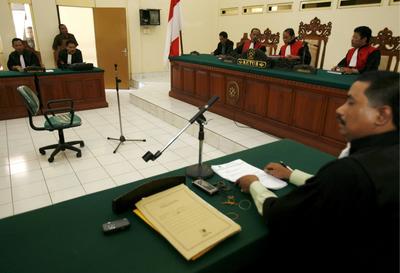As Gunningham argues though, complex global problems such as energy policy and climate change require immediate engagement by states like Indonesia, where governments are not ready — or able — to implement their policy promises. Asia’s governance gaps impact everyone.
Failure to live up to international regulatory standards is only part of the story.
This week we release a new issue of East Asia Forum Quarterly (EAFQ), which presents fresh perspectives on why, as Dowdle argues, regulatory geography matters. Economies in the Global South have less access to the public and social wealth necessary to maintain a modern regulatory state. Pedersen suggests outliers such as Burma may be less amenable to punitive approaches. So we see considerable divergence from global regulatory norms. Japan’s financial deregulation followed an Anglo-American script but domestic conditions thwarted the anticipated economic growth. India adopts a World Bank formula for its investment climate, but the rise in foreign direct investment appears coincidental and comes at the cost of eroding domestic environmental governance. Preserving national regulatory autonomy matters in global investment architecture while courts and independent regulators are shaped by local political priorities and economic realities.
Certainly Asian regulatory agencies and actors are susceptible to capture, corruption and opportunism like their Western counterparts. Strengthening ‘rule of law’ institutions in Mongolia has produced elites who are immune to legal restraint. Officials profiting from land speculation in Vietnam are a regulatory hair’s breadth from those obstructing anti-corruption efforts in India and China.
The counterfactual surprise, however, is the emergence of local regulatory actors who play new and unique roles. Malaysia’s federated states, vested with jurisdiction over family and inheritance issues for Muslims, are laboratories for both liberal and restrictive interpretations of Islamic law. By contrast, Indonesia’s Religious Courts emerge as champions of access to justice. Fu looks at the fate of lawyers in China seeking to emulate the US public interest litigation and the Party backlash towards them.
Read together, the essays in EAFQ speak less to the (undeniable) regulatory failures of the many political systems of Asia than to a regulatory reawakening: a region characterized by regulatory experimentation, adaptation to local conditions and the vigorous contestation of international norms that demands more intellectual engagement.
Veronica Taylor is Professor, Regulatory Institutions Network, and Director, School of Regulation, Justice and Diplomacy, Australian National University, and Affiliate Professor of Law and Senior Advisor to the Asian Law Center at the University of Washington. She is the editor of the current edition of East Asia Forum Quarterly.

